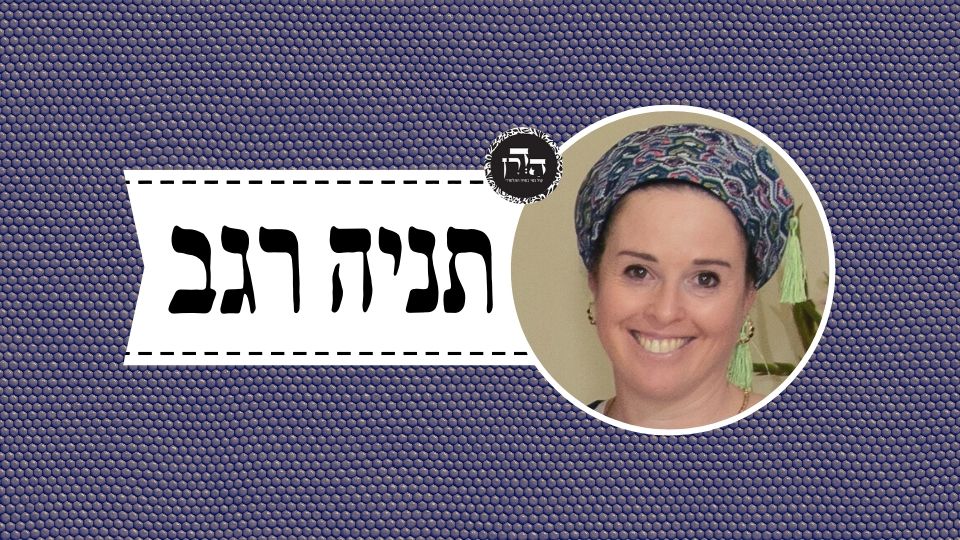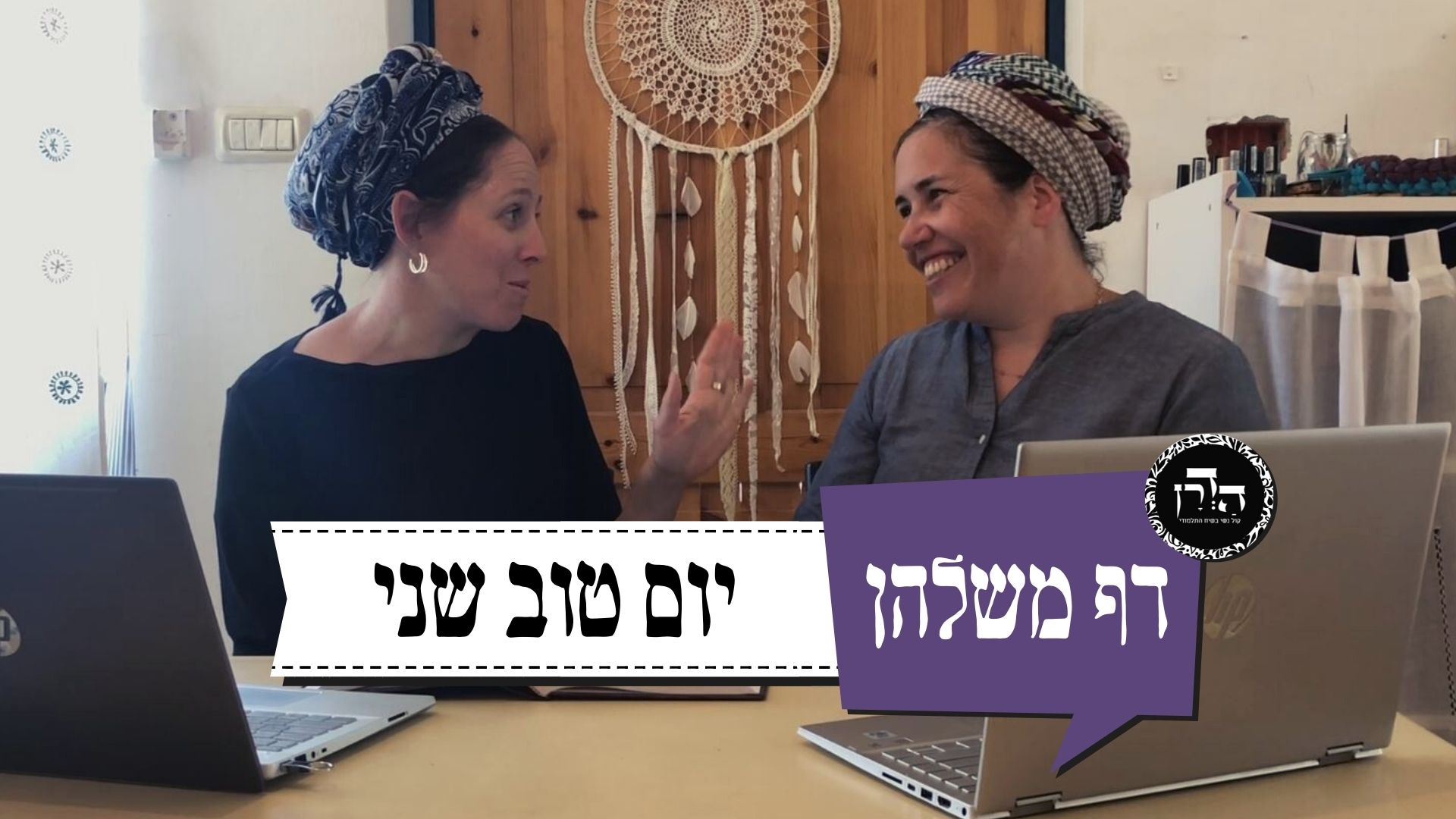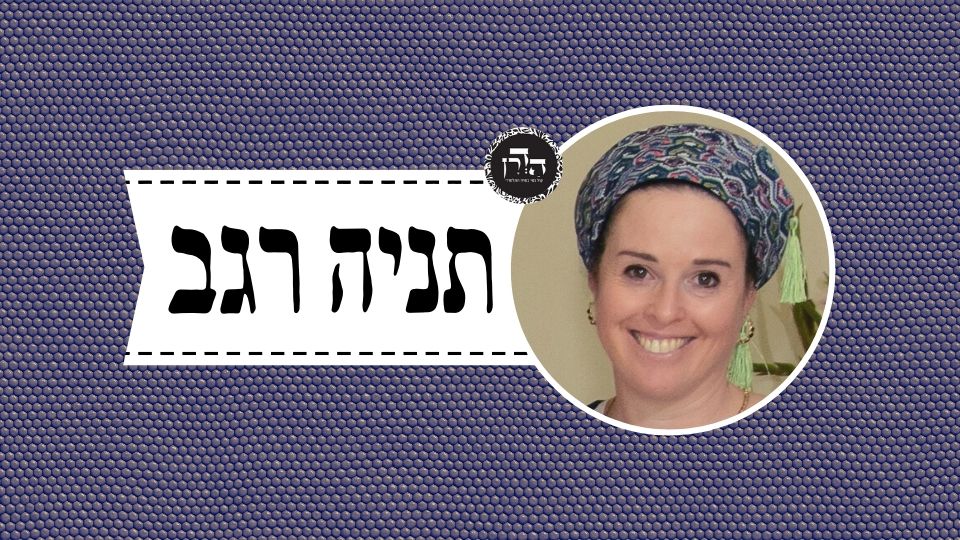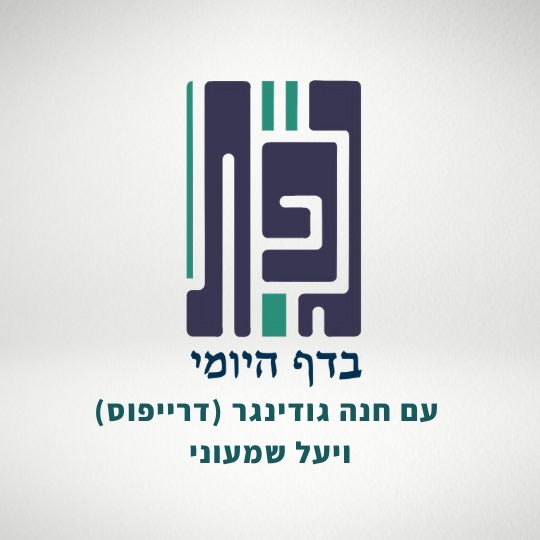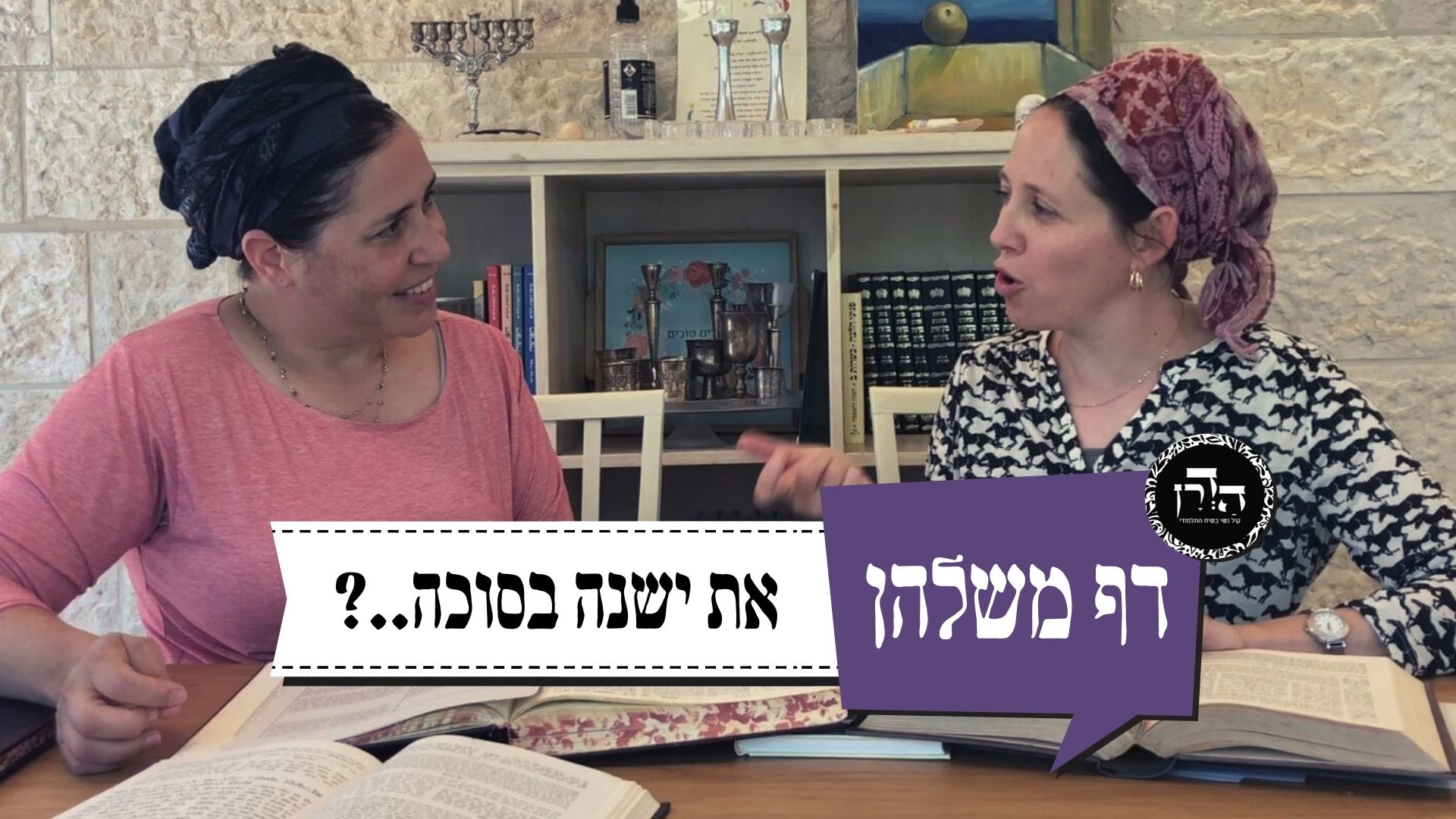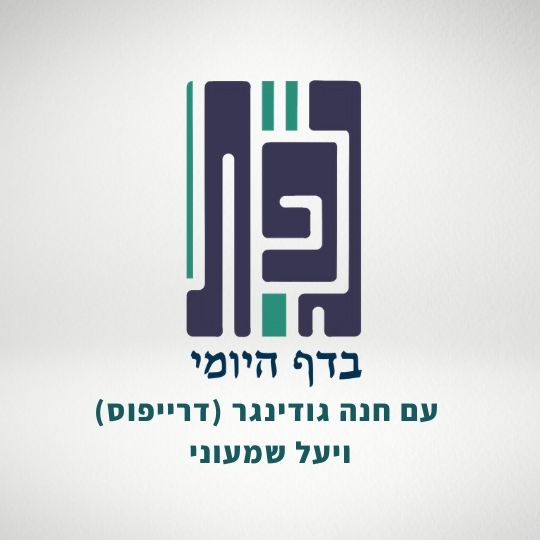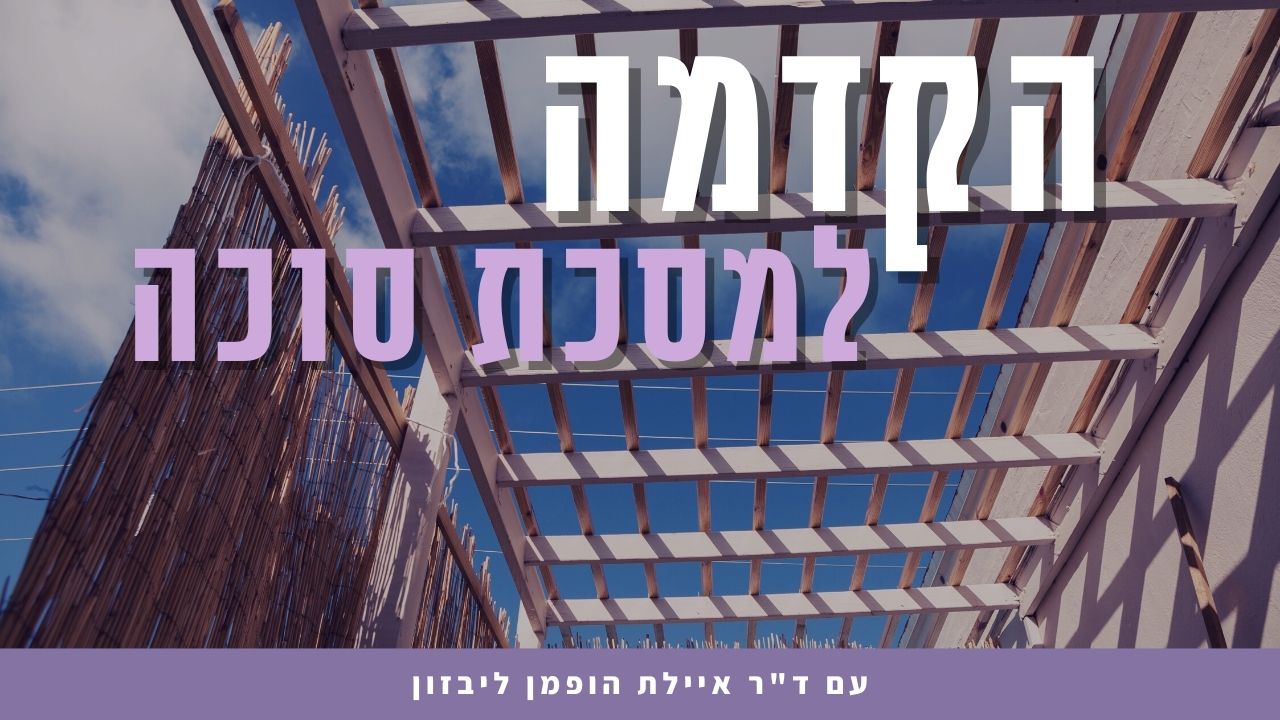סוכה מב
לֹא שָׁנוּ אֶלָּא שֶׁלֹּא יָצָא בּוֹ, אֲבָל יָצָא בּוֹ — חַיָּיב. הָא מִדְּאַגְבְּהֵיהּ נְפַק בֵּיהּ! אָמַר אַבָּיֵי: כְּשֶׁהֲפָכוֹ.
The Sages taught that he is exempt only in a case where he did not yet fulfill his obligation. However, if he already fulfilled his obligation and he carries the lulav out, he is liable to bring a sin-offering. The Gemara asks: Is it possible to carry the lulav without fulfilling one’s obligation? Didn’t he, from the moment that he lifted it, fulfill his obligation with it? Abaye said: It is referring to a case where he overturned it and lifted it. One fulfills his obligation only when lifting it in the manner in which it grows.
רָבָא אָמַר: אֲפִילּוּ תֵּימָא שֶׁלֹּא הֲפָכוֹ, הָכָא בְּמַאי עָסְקִינַן: כְּגוֹן שֶׁהוֹצִיאוֹ בִּכְלִי. וְהָא רָבָא הוּא דְּאָמַר: לְקִיחָה עַל יְדֵי דָּבָר אַחֵר — שְׁמָהּ לְקִיחָה! הָנֵי מִילֵּי דֶּרֶךְ כָּבוֹד, אֲבָל דֶּרֶךְ בִּזָּיוֹן — לָא.
Rava said: Even if you say that it is referring to a case where he did not invert it, with what are we dealing here? It is with a case where he took the lulav out in a vessel and did not fulfill his obligation. The Gemara asks: But isn’t Rava the one who said that taking by means of another object is considered taking? The Gemara answers: This applies only when the addition is in a deferential manner, for wrapping or ornamentation. But if the addition is in a degrading manner, as in this case, where one places the lulav into a vessel and carries it that way, no, it is not considered taking.
אָמַר רַב הוּנָא: אוֹמֵר הָיָה רַבִּי יוֹסֵי, עוֹלַת הָעוֹף שֶׁנִּמְצֵאת בֵּין אֲגַפַּיִים, וּכְסָבוּר חַטַּאת הָעוֹף הִיא וַאֲכָלָהּ — פָּטוּר. מַאי קָא מַשְׁמַע לַן, דְּטָעָה בִּדְבַר מִצְוָה — פָּטוּר? הַיְינוּ הָךְ!
Rav Huna said that Rabbi Yosei would say: In the case of a bird sacrificed as a burnt-offering that is found among other birds in one of the corners of the altar, and the priest thought that it was a bird sacrificed as a sin-offering and he ate it, as sin-offerings are eaten by priests, he is exempt from liability to bring a guilt-offering for misuse of consecrated items. The Gemara asks: What is Rav Huna teaching us? Is it that if one erred in the matter of a mitzva, he is exempt? This is identical to that statement of Rabbi Yosei; what novel element is introduced by Rav Huna?
מַהוּ דְּתֵימָא: הָתָם הוּא דְּטָעָה בִּדְבַר מִצְוָה פָּטוּר — הַיְינוּ דַּעֲבַד מִצְוָה. אֲבָל הָכָא, דְּטָעָה בִּדְבַר מִצְוָה וְלָא עֲבַד מִצְוָה — אֵימָא לָא, קָא מַשְׁמַע לַן.
The Gemara answers: It is lest you say that it is only there, in the case of carrying the lulav, that one who erred in a matter of a mitzva is exempt and that is because he performed a mitzva; however, here, with regard to mistakenly identifying the bird-offerings, where he erred in the matter of a mitzva but did not perform a mitzva at all, say no, in that case he would not be exempt from liability to bring a guilt-offering. Therefore, Rav Huna teaches us that he is in fact exempt.
מֵיתִיבִי, רַבִּי יוֹסֵי אוֹמֵר: הַשּׁוֹחֵט אֶת הַתָּמִיד שֶׁאֵינוֹ מְבוּקָּר כְּהִלְכָתוֹ בַּשַּׁבָּת — חַיָּיב חַטָּאת, וְצָרִיךְ תָּמִיד אַחֵר!
The Gemara raises an objection. Rabbi Yosei says: With regard to one who slaughters the daily offering on Shabbat that is not properly inspected, and a blemish is discovered that disqualifies the sacrifice, he unwittingly performed the prohibited labor of slaughtering on Shabbat. He is liable to bring a sin-offering, and he needs to bring a different daily offering. Even though he erred in a matter of a mitzva, he is liable.
אֲמַר לֵיהּ: בַּר מִינַּהּ דְּהַהִיא. דְּהָא אִתְּמַר עֲלַהּ, אָמַר רַב שְׁמוּאֵל בַּר חַתַּאי אָמַר רַב הַמְנוּנָא סָבָא אָמַר רַב יִצְחָק בַּר אַשְׁיָאן אָמַר רַב הוּנָא אָמַר רַב: כְּגוֹן שֶׁהֱבִיאוֹ מִלִּשְׁכָּה שֶׁאֵינָן מְבוּקָּרִין.
Rav Huna said in response to the objection: Proof may be cited, except not from that baraita, as it was stated concerning that baraita that Rav Shmuel bar Ḥatai said that Rav Hamnuna Sava said that Rav Yitzḥak bar Ashian said that Rav Huna said that Rav said: It is referring to a case where they brought the sheep for the daily offering from a chamber in which there were sheep that are not inspected. Since under no circumstances should one take a sheep for the daily offering from uninspected sheep, his error cannot be attributed to preoccupation with the mitzva. Therefore, although he was engaged in performance of a mitzva, he is not exempt from liability to bring a sin-offering.
מַתְנִי׳ מְקַבֶּלֶת אִשָּׁה מִיָּד בְּנָהּ וּמִיַּד בַּעְלָהּ, וּמַחְזִירָתוֹ לְמַיִם בְּשַׁבָּת. רַבִּי יְהוּדָה אוֹמֵר: בַּשַּׁבָּת מַחְזִירִין, בְּיוֹם טוֹב מוֹסִיפִין, וּבַמּוֹעֵד מַחְלִיפִין.
MISHNA: A woman may receive a lulav from her son or from her husband and return it on Shabbat to the water in which it had been placed. Rabbi Yehuda says: On Shabbat one may return the lulav to the water; and on the Festival one may even add fresh water to the vessel so the lulav will not wilt; and during the intermediate days of the Festival, one may even change the water.
קָטָן הַיּוֹדֵעַ לְנַעְנֵעַ — חַיָּיב בְּלוּלָב.
A minor who knows how to wave the lulav is obligated in the mitzva of lulav due to the requirement to train him in the performance of mitzvot.
גְּמָ׳ פְּשִׁיטָא? מַהוּ דְּתֵימָא: הוֹאִיל וְאִשָּׁה לָאו בַּת חִיּוּבָא הִיא, אֵימָא לָא תְּקַבֵּל, קָא מַשְׁמַע לַן.
GEMARA: With regard to the halakha in the mishna that a woman may receive the lulav, the Gemara asks: That is obvious. Why would it be prohibited? The Gemara answers that it is necessary to state this lest you say: Since a woman is not subject to the obligation of the four species, as it is a time-bound, positive mitzva, say that she should not receive the lulav, as for her, moving the lulav is tantamount to moving set-aside objects and would therefore be prohibited. Therefore, the mishna teaches us that it is permitted.
קָטָן הַיּוֹדֵעַ לְנַעְנֵעַ. תָּנוּ רַבָּנַן: קָטָן הַיּוֹדֵעַ לְנַעְנֵעַ — חַיָּיב בְּלוּלָב, לְהִתְעַטֵּף — חַיָּיב בְּצִיצִית, לִשְׁמוֹר תְּפִילִּין — אָבִיו לוֹקֵחַ לוֹ תְּפִילִּין, יוֹדֵעַ לְדַבֵּר — אָבִיו מְלַמְּדוֹ תּוֹרָה וּקְרִיאַת שְׁמַע.
§ It is taught in the mishna: A minor who knows how to wave the lulav is obligated in the mitzva of lulav. The Sages taught: A minor who knows how to wave the lulav is obligated in the mitzva of lulav; one who knows how to wrap himself in a garment, is obligated in the mitzva of ritual fringes; if he knows to preserve the sanctity of phylacteries in a state of cleanliness, his father buys him phylacteries; if he knows how to speak, his father immediately teaches him Torah and Shema.
תּוֹרָה מַאי הִיא? אָמַר רַב הַמְנוּנָא: ״תּוֹרָה צִוָּה לָנוּ מֹשֶׁה מוֹרָשָׁה קְהִלַּת יַעֲקֹב״. קְרִיאַת שְׁמַע מַאי הִיא? פָּסוּק רִאשׁוֹן.
The Gemara asks: And in this context, what is the Torah taught to a child who has just learned to speak? Rav Hamnuna said: It is referring to the verse: “Moses commanded us Torah, an inheritance of the congregation of Jacob” (Deuteronomy 33:4), underscoring the relationship between the Jewish people and the Torah. The Gemara asks further: And what is Shema taught to a child who has just learned to speak? The Gemara answers: It is referring to the first verse of Shema.
הַיּוֹדֵעַ לִשְׁמוֹר גּוּפוֹ — אוֹכְלִין עַל גּוּפוֹ טְהָרוֹת. לִשְׁמוֹר אֶת יָדָיו — אוֹכְלִין עַל יָדָיו טְהָרוֹת. הַיּוֹדֵעַ לִישָּׁאֵל, בִּרְשׁוּת הַיָּחִיד — סְפֵיקוֹ טָמֵא, בִּרְשׁוּת הָרַבִּים — סְפֵיקוֹ טָהוֹר. הַיּוֹדֵעַ לִפְרוֹס כַּפָּיו — חוֹלְקִין לוֹ תְּרוּמָה בְּבֵית הַגֳּרָנוֹת.
The Sages continued: If the minor is one who knows to protect his body from ritual impurity, it is permitted to eat ritually pure food that came into contact with his body. If he is one who knows to protect his hands from ritual impurity, it is permitted to eat ritually pure food that came into contact with his hands. If he is one who knows to be asked and accurately clarify which objects he touched, his status is like that of an adult based on the following distinction: If the question was with regard to ritual impurity in the private domain and it is a case of uncertainty, the item in question is deemed impure. However, if the question was with regard to ritual impurity in the public domain and it is a case of uncertainty, the item in question is deemed pure. If the minor is a priest who knows how to spread his hands and recite the priestly benediction, one distributes teruma to him in the granary as one would to any other priest.
הַיּוֹדֵעַ לִשְׁחוֹט — אוֹכְלִין מִשְּׁחִיטָתוֹ. אָמַר רַב הוּנָא: וְהוּא שֶׁגָּדוֹל עוֹמֵד עַל גַּבָּיו.
If he is one who knows how to slaughter an animal, one may eat from animals that he slaughtered. Rav Huna said: That is the halakha provided that an adult is standing over him overseeing the slaughter.
יָכוֹל לֶאֱכוֹל כְּזַיִת דָּגָן — מַרְחִיקִין מִצּוֹאָתוֹ וּמִמֵּימֵי רַגְלָיו אַרְבַּע אַמּוֹת. אָמַר רַב חִסְדָּא: וְהוּא שֶׁיָּכוֹל לְאוֹכְלוֹ בִּכְדֵי אֲכִילַת פְּרָס. אָמַר רַב חִיָּיא בְּרֵיהּ דְּרַב יֵיבָא: וּבַגָּדוֹל, אַף עַל פִּי שֶׁאֵינוֹ יָכוֹל לֶאֱכוֹל בִּכְדֵי אֲכִילַת פְּרָס — דִּכְתִיב: ״וְיוֹסִיף דַּעַת יוֹסִיף מַכְאוֹב״.
If he is one who is able to eat an olive-bulk of grain, one distances himself four cubits from his feces and from his urine before praying or reciting Shema, as the feces and urine of a child at that stage of development produce offensive odors like those of an adult. Rav Ḥisda said: That is the halakha provided that the minor can eat the olive-bulk of grain in the time it takes to eat a half-loaf of bread. However, if it takes him longer, one need not distance himself before praying. Rav Ḥiyya, son of Rav Yeiva, said: And with regard to an adult, even if he is unable to eat an olive-bulk of grain in the time it takes to eat a half-loaf of bread, one must distance himself from his feces before praying, as it is written: “And he that increases knowledge, increases sorrow” (Ecclesiastes 1:18), meaning that as one grows older he becomes more flawed.
יָכוֹל לֶאֱכוֹל כְּזַיִת צָלִי — שׁוֹחֲטִין עָלָיו אֶת הַפֶּסַח, שֶׁנֶּאֱמַר: ״אִישׁ לְפִי אׇכְלוֹ״. רַבִּי יְהוּדָה אוֹמֵר: עַד שֶׁיָּכוֹל לְבָרֵר אֲכִילָה. כֵּיצַד? נוֹתְנִין לוֹ צְרוֹר — וְזוֹרְקוֹ, אֱגוֹז — וְנוֹטְלוֹ.
If he is one who is able to eat an olive-bulk of roasted meat, one slaughters the Paschal lamb on his behalf, and he is included in the group assembled to eat the Paschal lamb, as it is stated: “According to every man’s eating you shall make your count for the lamb” (Exodus 12:4). Rabbi Yehuda says: Ability to consume an olive-bulk is insufficient to include him in the group; rather, he is not included until he is able to discern what he is eating. How is that determined? If one gives him a pebble and he throws it away, and if one gives him a nut and he takes it, he may be included in the group for eating the Paschal lamb.
הֲדַרַן עֲלָךְ לוּלָב הַגָּזוּל
לוּלָב וַעֲרָבָה — שִׁשָּׁה וְשִׁבְעָה. הַהַלֵּל וְהַשִּׂמְחָה — שְׁמוֹנָה. סוּכָּה וְנִיסּוּךְ הַמַּיִם — שִׁבְעָה. הֶחָלִיל — חֲמִשָּׁה וְשִׁשָּׁה.
MISHNA: The lulav is taken and the altar is encircled together with the willow branch either six or seven days, depending on which day of the Festival occurs on Shabbat. The obligation to recite the full hallel and the mitzva of rejoicing, i.e., eating the meat of the peace-offering, is in effect for eight days, seven days of Sukkot and the Eighth Day of Assembly. The mitzva of sukka and the ritual of the water libation on the altar are in effect for seven days. The flute is played in the Temple for five or six days, depending on which day of the Festival occurs on Shabbat, to enhance the rejoicing on the Festival.
לוּלָב שִׁבְעָה, כֵּיצַד? יוֹם טוֹב הָרִאשׁוֹן שֶׁל חַג שֶׁחָל לִהְיוֹת בַּשַּׁבָּת — לוּלָב שִׁבְעָה, וּשְׁאָר כׇּל הַיָּמִים — שִׁשָּׁה.
The mishna elaborates: The lulav is taken for seven days. How so? If the first day of the Festival occurs on Shabbat, since the mitzva to take the lulav on the first day is a mitzva by Torah law, it overrides Shabbat and one takes the lulav that day. As a result, the lulav is then taken for seven days. And if the first day occurs on one of the rest of the days of the week and one of the other days of the Festival coincides with Shabbat, the lulav is taken only six days. Since the mitzva to take the lulav is a mitzva by rabbinic law throughout the rest of Sukkot, it does not override Shabbat.
עֲרָבָה שִׁבְעָה, כֵּיצַד? יוֹם הַשְּׁבִיעִי שֶׁל עֲרָבָה שֶׁחָל לִהְיוֹת בַּשַּׁבָּת — עֲרָבָה שִׁבְעָה, וּשְׁאָר כׇּל הַיָּמִים — שִׁשָּׁה.
The altar is encircled with the willow branch for seven days. How so? If the seventh day of the mitzva of the willow branch occurs on Shabbat, since on that day it is a mitzva by Torah law, it overrides Shabbat and the mitzva of the willow branch is then performed for seven days. And if the seventh day occurs on one of the rest of the days of the week, and one of the other days of the Festival coincides with Shabbat, since the mitzva of the willow branch is then by rabbinic law and consequently does not override Shabbat, it is performed for only six days.
מִצְוַת לוּלָב, כֵּיצַד (בַּשַּׁבָּת)? יוֹם טוֹב הָרִאשׁוֹן שֶׁל חַג שֶׁחָל לִהְיוֹת בַּשַּׁבָּת מוֹלִיכִין אֶת לוּלְבֵיהֶן לְהַר הַבַּיִת, וְהַחַזָּנִין מְקַבְּלִין מֵהֶן וְסוֹדְרִין אוֹתָן עַל גַּבֵּי אִיצְטְבָא, וְהַזְּקֵנִים מַנִּיחִין אֶת שֶׁלָּהֶן בְּלִשְׁכָּה. וּמְלַמְּדִין אוֹתָם לוֹמַר: כׇּל מִי שֶׁמַּגִּיעַ לוּלָבִי לְיָדוֹ — הֲרֵי הוּא לוֹ בְּמַתָּנָה.
How is the mitzva of lulav fulfilled in the Temple when the first day of the Festival occurs on Shabbat? If the first day of the Festival occurs on Shabbat, all the people bring their lulavim to the Temple Mount on Friday. The attendants receive the lulavim from them and arrange them on a bench [itztaba], while the Elders place their lulavim in the chamber. They were given permission to do so due to the concern that they would be injured the following morning in the rush of people in search of their lulavim. And the court teaches the people to say: With regard to anyone whom my lulav reaches his possession, it is his as a gift. They did so to avoid the likely situation where people would inadvertently take lulavim that did not belong to them, as on the first day of the Festival one does not fulfill his obligation with a lulav that does not belong to him.
לְמָחָר מַשְׁכִּימִין וּבָאִין, וְהַחַזָּנִין זוֹרְקִין אוֹתָם לִפְנֵיהֶם, וְהֵן מְחַטְּפִין וּמַכִּין אִישׁ אֶת חֲבֵירוֹ. וּכְשֶׁרָאוּ בֵּית דִּין שֶׁבָּאוּ לִידֵי סַכָּנָה — הִתְקִינוּ שֶׁיְּהֵא כׇּל אֶחָד וְאֶחָד נוֹטֵל בְּבֵיתוֹ.
The next day everyone rises early and comes to the Temple, and the attendants throw the lulavim before them. And in the confusion, the people snatch the lulavim and in the process strike one another. And when the court saw that they came to potential danger, they instituted that each and every person will take his lulav in his house and fulfill the mitzva there.
גְּמָ׳ אַמַּאי? טִלְטוּל בְּעָלְמָא הוּא, וְלִידְחֵי שַׁבָּת! אָמַר רַבָּה: גְּזֵרָה שֶׁמָּא יִטְּלֶנּוּ בְּיָדוֹ וְיֵלֵךְ אֵצֶל בָּקִי לִלְמוֹד,
GEMARA: Apropos the prohibition against taking a lulav on Shabbat, the Gemara asks: Why is this prohibited? After all, taking the lulav is merely moving the object and is prohibited due to the rabbinic prohibition of set-aside. Since the mitzva to take the lulav is a mitzva by Torah law, let it override this relatively minor Shabbat prohibition. Rabba said: This prohibition is a decree lest one take the lulav in his hand and go to an expert to learn how to wave the lulav or how to recite its blessing,


